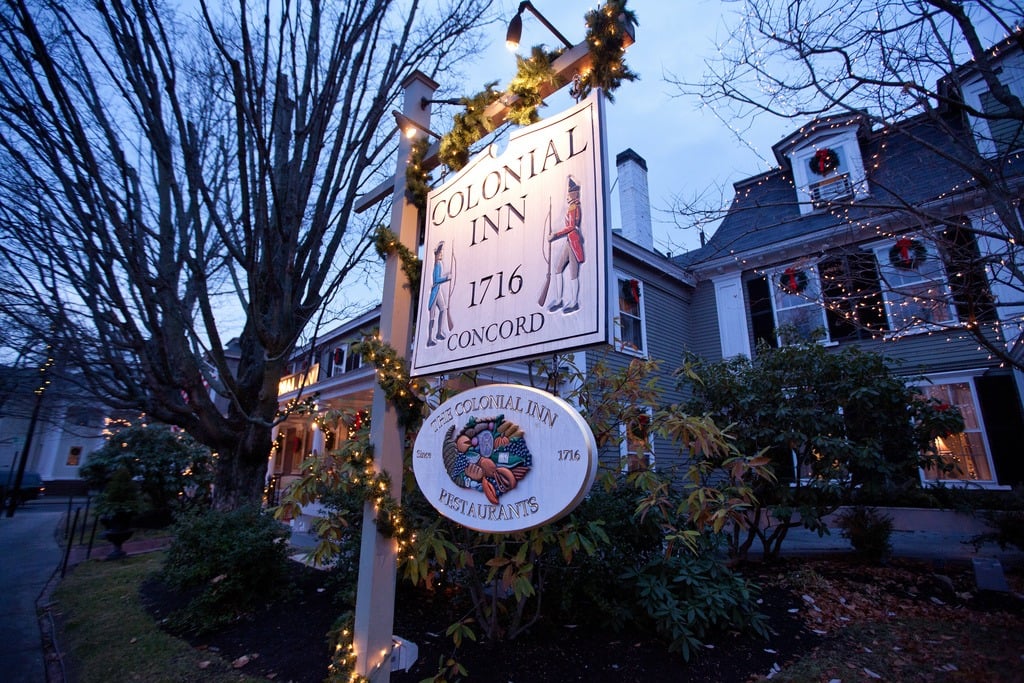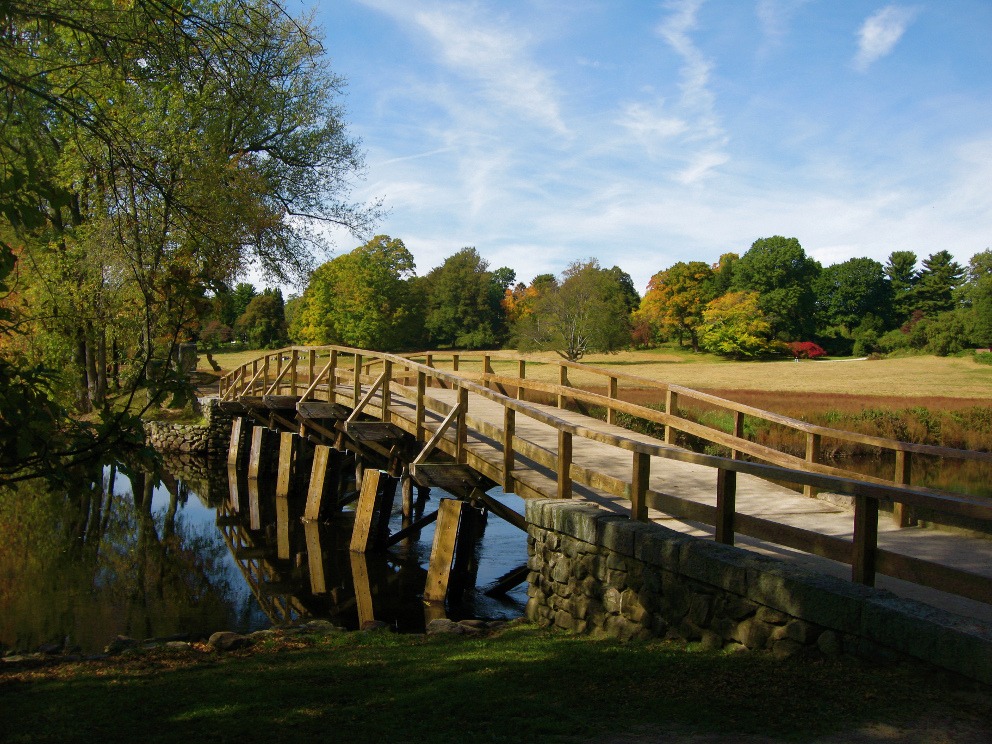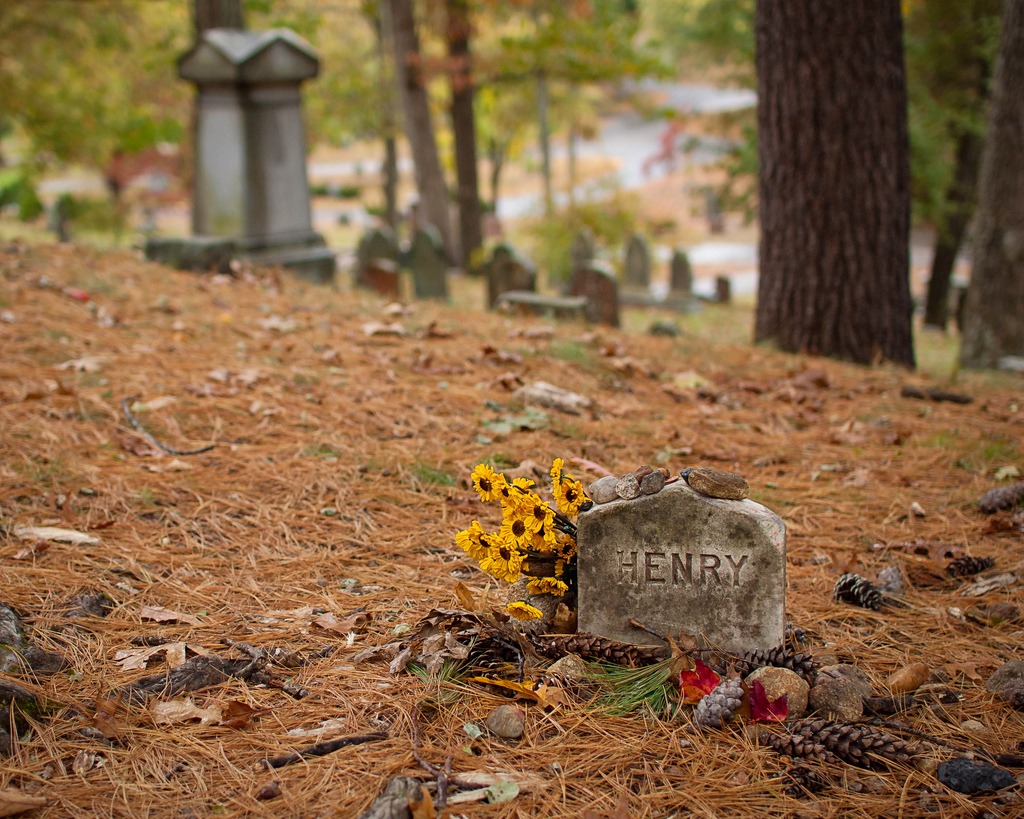Previously: The Stanley Hotel.
Sometimes I think that maybe the reason I’m so interested in weird stuff is because I grew up in a place with a boatload of history. I was born and raised in Concord, MA, a town known as much for its connection to the Revolutionary War as for its rich literary tradition — and on top of that, my mother is a historian. As a result, I spent a great deal of my childhood hanging around the Old Manse, the Orchard House, Sleepy Hollow Cemetery, the Old North Bridge, Walden Pond, and all the rest. When you grow up with all that history surrounding you, you can’t help but get drawn in by it — and although I haven’t called Concord my home for many years, it’s still huge part of who I am. My one regret? Never having spent a night in room 24 at the Colonial Inn.

I’d been hearing the story for as long as I could remember: Once upon a time, a newlywed couple checked into the inn for what was supposed to be a romantic honeymoon in a picturesque town. They headed up to room 24… only to come back down looking just a little bit pale the next morning. Several weeks after the couple left, the inn’s manager received a letter from the couple informing him that although the property was very beautiful, their room had been visited by an uninvited guest in the middle of the night. The guest, of course, lacked feet, instead preferring to float.
[Like what you read? Check out Dangerous Games To Play In The Dark, available from Chronicle Books now!]
I didn’t find out the details until later, but the incident occurred in 1996, the couple in question were M.P. and Judith Fellenz of Highland Falls, New York, and the caretaker’s name was Loring Grimes. The letter read as follows:
“I have always prided myself on being a fairly sane individual but on the night of June 14 I began to have my doubts. On that night I saw a ghost in your Inn. The next morning I felt too foolish to mention it to the management, so my husband and I continued on our honeymoon. I wondered whether or not any sightings of a ghost had been reported or if any history of one was involved in the history of the Inn.
“The incident sounds very melodramatic. I was awakened in the middle of the night by a presence in the room—a feeling that some unknown being was in the midst. As I opened my eyes, I saw a grayish figure at the side of my bed, to the left, about four feet away. It was not a distinct person, but a shadowy mass in the shape of a standing figure. It remained still for a moment, then slowly floated to the foot of the bed, in front of the fireplace. After pausing a few seconds, the apparition slowly melted away. It was a terrifying experience. I was so frightened I could not scream. I was frozen to the spot . . .
“For the remainder of the night, I could not fall asleep. It was spent trying to conjure a logical explanation for the apparition. It was not a reflection of the moon as all the curtains were completely closed. Upon relating the incident to my husband, he said the ghost was included in the price of the room.”
Well played, Mr. Fellenz.
Is the Colonial Inn actually haunted? I don’t know. The stories always felt a little thin to me, but perhaps that’s because the building lacks one singular defining moment to which one might pin a haunting. The (kinda racist!) version I always heard growing up was that the spirit in Room 24 belonged to a Native American woman (usually referred to as a “princess”) who had been wronged, killed, or both; there don’t seem to be any facts backing this one up, though, so it’s unlikely to be true.
A more plausible explanation draws from the history of the inn itself: It’s actually comprised of three buildings, which were originally separate and joined together later on; built in 1716, the oldest of the three was the home of physician Timothy Minot during the Revolution. Minot treated many wounded soldiers in his home following the Battle of Concord at the North Bridge on April 19, 1775; accordingly, some believe the spirits to be those of the soldiers who Minot failed to save. It’s also been suggested that Minot himself might have chosen to haunt the inn, although the argument isn’t quite as convincing — unless he was particularly distraught about the patients who died on his watch, it was probably just business as usual for him.
Numerous paranormal investigators have examined the inn, from local groups to Sy Fy’s Ghost Hunters; most of them concluded that there is, in fact, paranormal activity occurring on the premises, but as always, I would take the results with a pretty large grain of salt. EVPs can usually be explained by the order we impose on random noise in order to make sense of it; orbs aren’t usually more than motes of dust reflecting light; and doors often swing open or shut in old buildings on their own, purely because everything is slightly off kilter (that’s what happens when a building has been settling on its foundations for hundreds of years).
Even though I managed to go my entire childhood without witnessing any mysterious incidents in my hometown myself, I know plenty of folks who have; maybe one day I’ll convince my brother to tell us about his encounter from his years as a tour guide at the Old Manse. And I’m still fascinated by the possibilities, which, to me, is what good stories are all about. If ghosts are echoes of history, there’s nowhere better in the United States to find them than in Concord.
Recommended reading:
Historic Inn Scares Up a Ghost Story.
***
Follow The Ghost In My Machine on Twitter @GhostMachine13 and on Facebook @TheGhostInMyMachine. And don’t forget to check out Dangerous Games To Play In The Dark, available now from Chronicle Books!


Leave a Reply